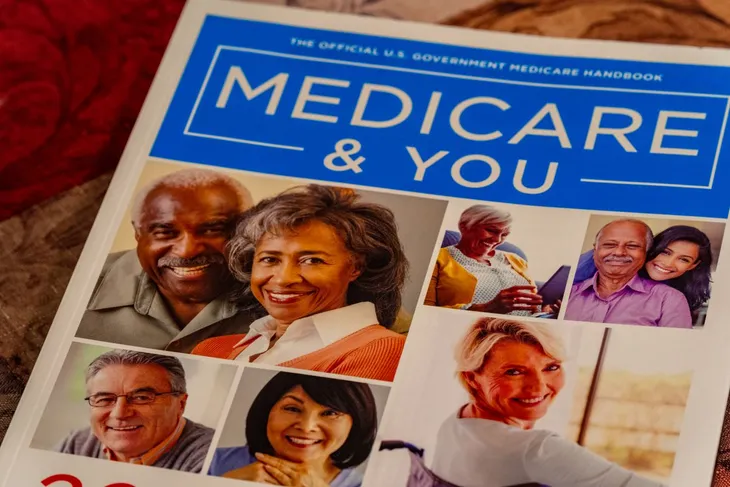- Medicare is a federal health care program that helps seniors and qualifying younger people cover a variety of medical expenses.
- Each year, Medicare sees changes that seniors need to be aware of.
- Open enrollment for Medicare runs from October 15 to December 7.
Few of us look forward to reviewing our insurance coverage. It’s dry, confusing, and oftentimes frustrating. Nevertheless, the Medicare deadlines come and go, whether you’re excited about them or not. Just like in previous years, seniors can alter their coverage or enroll for the first time between October 15, 2022 and December 7, 2022.
The Medicare enrollment period hasn’t changed, but a few important things have. A lot of this year’s changes may end up meaning little to you. But if you’re one of the fortunate few whose lives benefit from this year’s changes, then you could be in line for a sizable increase in benefits.
Read ahead to learn more about the upcoming changes to Medicare and how they may affect seniors like you.
What Is Medicare?
Medicare is a federal health care program that’s designed to help seniors and qualifying younger people cover expenses related to a variety of medical services.
Medicare isn’t free, and rarely covers all of a person’s medical expenses. Most Medicare enrollees are required to pay a monthly premium, cover the cost of any deductibles, and pay a percentage of the medical expenses.
Dental, hearing, and vision care are not covered by Medicare. But the federally regulated health insurance program does indeed cover most health expenses. It’s incredibly popular too. Roughly 18.5 percent of the U.S. population is on Medicare, which amounts to over 61 million Americans.
 ATU Images / Getty Images
ATU Images / Getty ImagesWho Is Eligible for Medicare?
Despite those eye-catching statistics, Medicare enrollment is quite restrictive. Medicare is only made available to U.S. citizens and legal permanent residents who have lived in the United States for at least five consecutive years.
Seniors who are 65 or older are eligible. As such, they should be able to enroll and receive ongoing coverage without much trouble.
Although Medicare primarily serves American seniors, it is open to some U.S. residents who are younger than 65. Those with end-stage renal disease and certain disabilities may be eligible for Medicare too.
 shapecharge / Getty Images
shapecharge / Getty ImagesWhat Are the Differences in Medicare Plans?
Medicare coverage can be broken down into four distinct plans. Each of these plans cover different medical care costs and services. Each comes with their own monthly premiums.
The four parts are:
- Part A: Often called hospital insurance. It is used to help cover the cost of inpatient hospital care, skilled nursing facility, hospice, lab tests, surgery, and home health care.
- Part B: Also known as medical insurance. It is used to cover outpatient care, doctor and other health care providers’ services, durable medical equipment, home health care, and some preventative services.
- Part C: Also called Medicare Advantage. It offers optional benefits similar to those provided in Parts A and B, though Part C coverage is provided by a private sector health insurance company. Coverage from Part C plans can vary and is more expensive, but always provides greater coverage than Part A and B.
- Part D: Often called drug coverage. It offers optional benefits meant to cover the costs associated with prescription drugs. Part D coverage is also provided by a private sector health insurance company and depends on the enrollees chosen plan.
 Jerome.Romme / Shutterstock
Jerome.Romme / ShutterstockWhat Are the Changes for 2023?
The end of every year sees several changes to Medicare coverage — and 2023 is no different. This year saw the passage of the Inflation Reduction Act, which will begin affecting Medicare coverage beginning on January 1, 2023.
There are five major changes for 2023. They are as follows:
- As was the case in 2022, a selection of items and services related to COVID-19 will be covered until the end of the public health emergency. This includes vaccines, diagnostic tests, antibody tests, monoclonal antibody treatment, and over-the-counter tests.
- Thanks to the Inflation Reduction Act, copays on insulin prescriptions will be capped at $35 a month for all Part D plans.
- Those on Medicare with End Stage Renal Disease that require immunosuppressive drug coverage beyond 36-months can receive coverage for those drugs thanks to a brand-new benefit.
- Those that miss the enrollment period as the result of exceptional circumstances may be eligible for a special enrollment period beginning on January 1, 2023.
- Anyone that signs up for Medicare the month that they turn 65, during the last three months of the initial Enrollment Period, or during the General Enrollment Period will receive coverage beginning the first day of the month following sign up.
 George Sheldon / Shutterstock
George Sheldon / ShutterstockConclusion
Don’t expect to be able to make this important decision in just one sitting. Enrolling in Medicare for the very first time or choosing how to alter your coverage ahead of 2023 deserves whatever amount of time you’re willing to commit. Reading online articles, seeking professional advice, and being honest about your finances and health are all essential to making the correct decision for you and your family.
While it is true that some of the latest changes to Medicare coverage can help save you money, you can only take advantage of the benefits that you know about. So, take the time to understand the changes. Plus, make a point to revisit your coverage every year to ensure that you’re prepared for everything the coming year may throw at you.
 ANDREI ASKIRKA / Shutterstock
ANDREI ASKIRKA / Shutterstock


